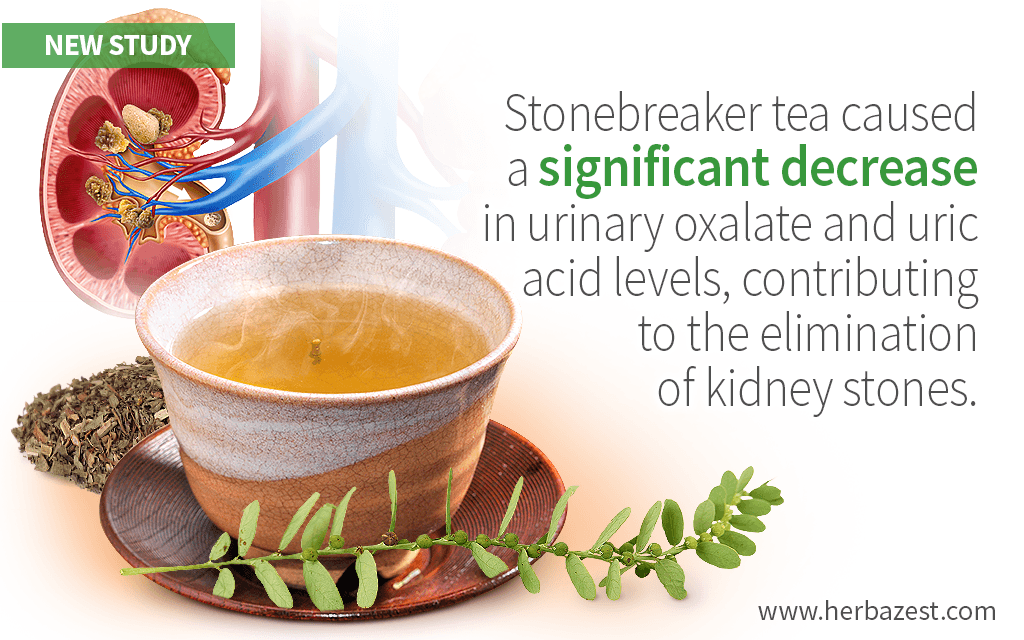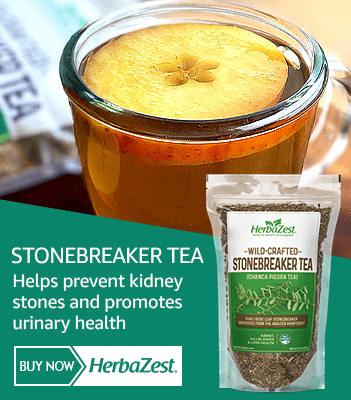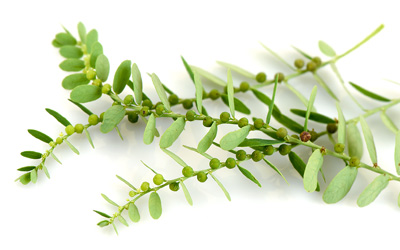Kidney stones - medically known as nephrolithiasis or urolithiasis - come in several types, with those composed of calcium oxalate and uric acid being the most common ones.
As the name suggests, stonebreaker, or chanca piedra, is widely recognized for its effects on eliminating kidney stones. Although the traditional uses of stonebreaker for kidney stones date back to hundreds of years ago, scientific studies validating them are scarce.
Brazilian researchers conducted this trial to evaluate the effects of stonebreaker on urinary metabolic parameters in people with kidney stones.
The Study
The study involved 56 patients with kidney stones that were smaller than 10 millimeters. It was conducted at the Urologic Division of the Clinical Hospital of the University of Sao Paulo, Brazil.
For 12 weeks, participants drank stonebreaker tea twice daily. Then, they underwent a washout period, during which they did not consume any stonebreaker tea. Before and after the trial, they took various assessments, including urinary metabolic analyses and renal ultrasonography, among others.
The Results
Researchers observed significant changes in several studied parameters, including increased urinary potassium, magnesium to creatine ratio, and potassium to creatine ratio. These changes are beneficial because low magnesium and potassium excretion could contribute to kidney stone formation.
Also, after drinking stonebreaker tea, the number and size of kidney stones decreased in 68% of patients.
The aforementioned increases in urinary excretion of magnesium and potassium lead to other beneficial changes as well:
People with hyperoxularia (excessive levels of oxalate in the urine commonly found in people with calcium oxalate kidney stones) had a substantial reduction in urinary oxalate levels.
Participants with hyperuricosuria (excessive levels of uric acid in the urine that may contribute to kidney stone formation) had a significant decrease in urinary uric acid.
What Does this Mean?
As evident by the results of this trial, drinking stonebreaker tea can be beneficial for people with kidney stones. It's proven to be a safe and effective option for those seeking to eliminate kidney stones naturally.
These findings are imperative as studies have shown that kidney stone disease is on the rise worldwide.1 Using stonebreaker for kidney stones can significantly reduce their burden on patients as well as the healthcare system.
Other herbs that can support urinary health are cranberries, uva ursi, and parsley.
Sources
- International Brazilian Journal of Urology, Effect of phyllanthus niruri on metabolic parameters of patients with kidney stone: a perspective for disease prevention, 2018
Footnotes:
- Mayo Clinic. (2018). Kidney stones on the rise, Mayo Clinic study finds. Retrieved May 11, 2023 from https://newsnetwork.mayoclinic.org/discussion/kidney-stones-on-the-rise-mayo-clinic-study-finds/







